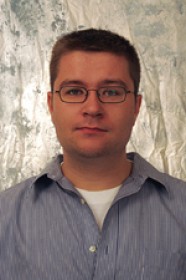
1:00 pm to 2:00 pm
Event Location: GHC 2109
Bio: Michael Furlong is a Ph.D. Student in the Field Robotics Center at Carnegie Mellon. He works on the Life in the Atacama Desert project.
Abstract: Science Autonomy is an exciting application of Active Learning but it comes with constraints that only appear when the learning agent is embodied. In the case of the Life in the Atacama Desert project robots are conducting exploration on a planetary scale. Because the robots exploring the real world can’t query an oracle for examples
their form of active learning becomes making the decision to sample from available opportunities or to search the world in the hopes of better opportunities arising. This work presents simulated results of applying optimal foraging theory to the sample/no-sample decision and demonstrates that it is an improvement over traditional design of
experiment techniques for small sampling budgets.
